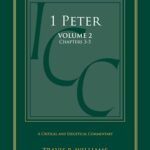Dealing with Pastoral Sin
An article published recently by the Religion News Service, “Is a Pastor’s Sin a Private Matter?” addresses a matter of great consequence and relevance in the Christian Church. Unfortunately, the article offered an answer that was terribly incomplete. It bandied about questions of (1) whether the sin under review was immoral/consensual or criminal/abusive, (2) whether the perpetrator qualified as a public figure or was merely a private citizen, and (3) whether publicly announcing what is private is legal or illegal. But standing out for its glaring omission was any appeal to the Bible’s own instruction in such matters.
Among the passages that speak to the issue, none is more direct than 1 Timothy 5:20: “Those who sin are to be rebuked before all, so that the others may take warning.” This seemingly straightforward verse is not, however, without its interpretive concerns. Note the following:
- While the opening pronoun “those” might possibly refer to anyone who sins, most understand the term, in its context, as referencing elders. Paul has just stressed to his readers that they must reject accusations against elders that are not substantiated by evidence from multiple witnesses (a worthy blog topic on its own). He follows this caution, however, with a stern instruction that those elders against whom accusations are substantiated must be rebuked.
- The scope of the public censure is also debated. Some suggest that “the others” is limited strictly to other elders. That is, the pastoral team/session (or in some traditions, the presbytery) should be informed and warned, but no one else. The presence of the word all suggests, however, that the censure is broader. It is also observable that, if the disciplinary sequence in Matthew 18 is in view, the step that immediately succeeds appeal to two or three witnesses is announcement to the “whole church”; further, the subsequent warning in Matthew 18:18 is not restricted to a specific class of believers.
- More hotly debated is the force of the participle hamartanontas (“who sin”). The present aspect can suggest continuing action and, if so, may be restricted to pastors presently engaged in sin (those who “are sinning,” so NIV2011). If so, then (1) past sins are not under review, and (2) following the Matthew 18 sequence, a simple act of confessing fresh sins may cancel all need for public rebuke. Paul’s use of the present aspect, however, is not determinative. Rather than communicating the sense of “elders who are actively sinning,” the participle may carry the less definite sense of “elders who sin” (so the NIV84). If the latter, then public announcement, especially of disqualifying guilt, may still be on the table.
- Some also suggest that the translation of elegcho as “rebuke” is too strong. Alternate glosses include “convince” or “convict,” but the setting seems to entail public demonstration, announcement, and attendant censure. The same term appears in Matthew 18, where the confrontation of a sinner involves “showing him his fault,” first privately, then publicly.
- The three previous points aside, however, it remains possible that Paul is not making a simple appeal to Matthew 18, but establishing a harsher discipline track for elders, who are judged according to a stricter standard (Jas 3:1). Ordinary members in the Matthew 18 process may, by repenting, retain or recover their membership—no matter how egregious their sin. But when an elder sins, there is another layer: his office. There are some sins that, even earnestly confessed and forsaken, render the retention or recovery of the pastoral office impossible. In such cases, it seems that some sort of public explanation must occur so that the church (particularly one that practices congregational polity) knows that the elder’s removal from office is biblically appropriate and necessary. If repentance has occurred, this should ideally take the form of a public confession and willing acceptance of termination of office, in the hand of the elder who sinned, and read by a designated spokesman.[1] Failing this, the church must follow its own standards of polity (up to and including full public exposure) to establish cause for (1) removal from office and (2) attendant revocation of ordination.
So in answer to the question “Is a Pastor’s Sin a Private Matter?” the answer is complex.
- If the elder’s “sin” is unsubstantiated, then the accusation should remain private (so v. 19); indeed, the church should take extraordinary measures to publicly acquit and defend an elder falsely accused.
- If the elder’s sin is duly substantiated but is of a minor (i.e., non-disqualifying) nature and is duly confessed, it may then (and only then) remain private (so, e.g., 1 Pet 4:8).
- If the elder’s sin is duly substantiated but not confessed, then that sin must eventually be made public in the spirit of Matthew 18. This is true of unconfessed sin by any member, elder or not.
- If the elder’s sin is of a disqualifying nature, then even confessed, it must result in the disclosure to the ordaining body (i.e., the church, the session, or presbytery) of sufficient grounds for termination of office and revocation of ordination. In this way, all may be warned.
[1]Note that I am deliberately avoiding the notion of “resignation from office.” While a given church must follow its own polity, I would argue that a pastor may no more resign his office to avoid disgrace than a member may resign his membership to avoid disgrace. But I digress…




Thank you.
Excellent analysis. Great work here Mark.